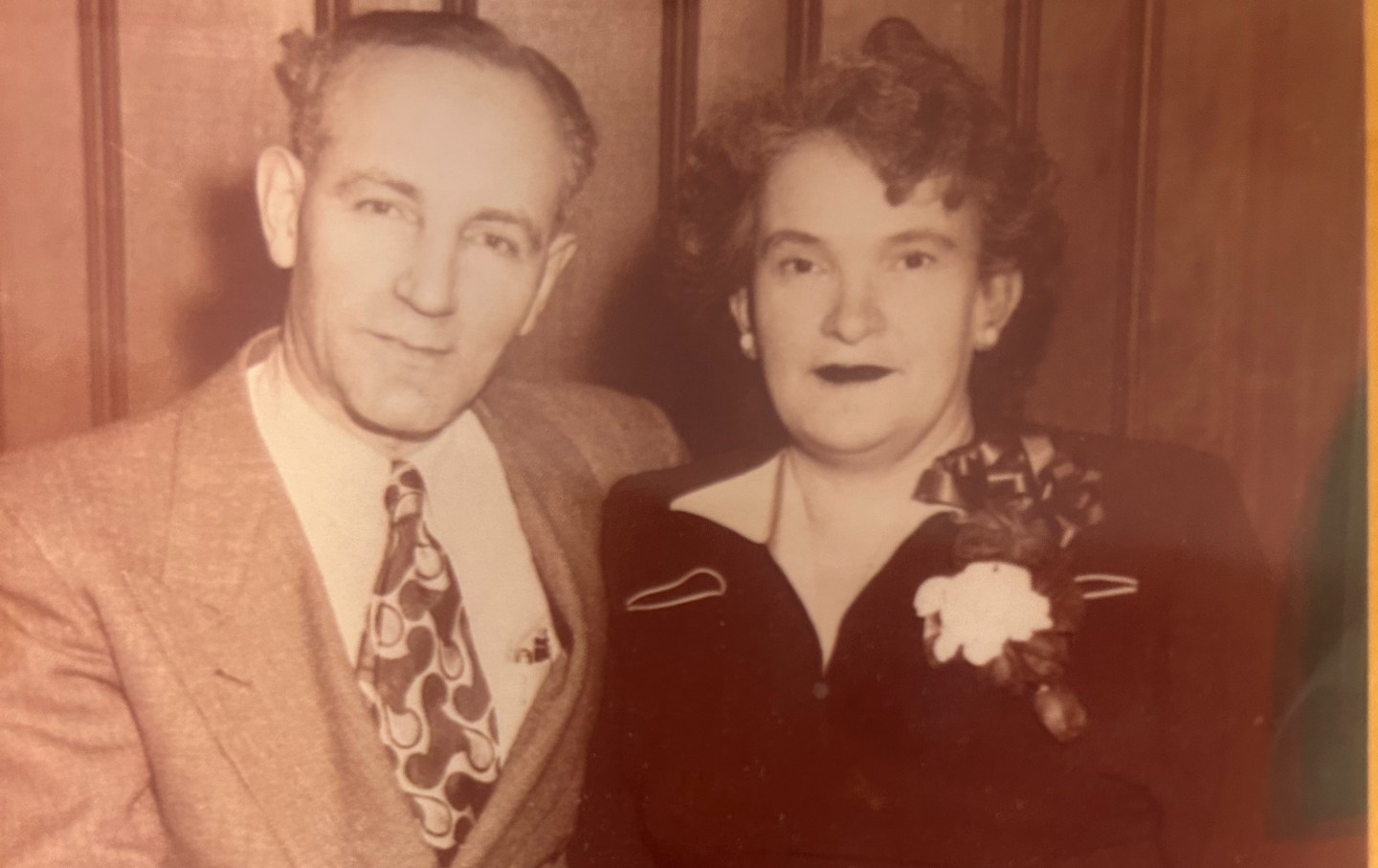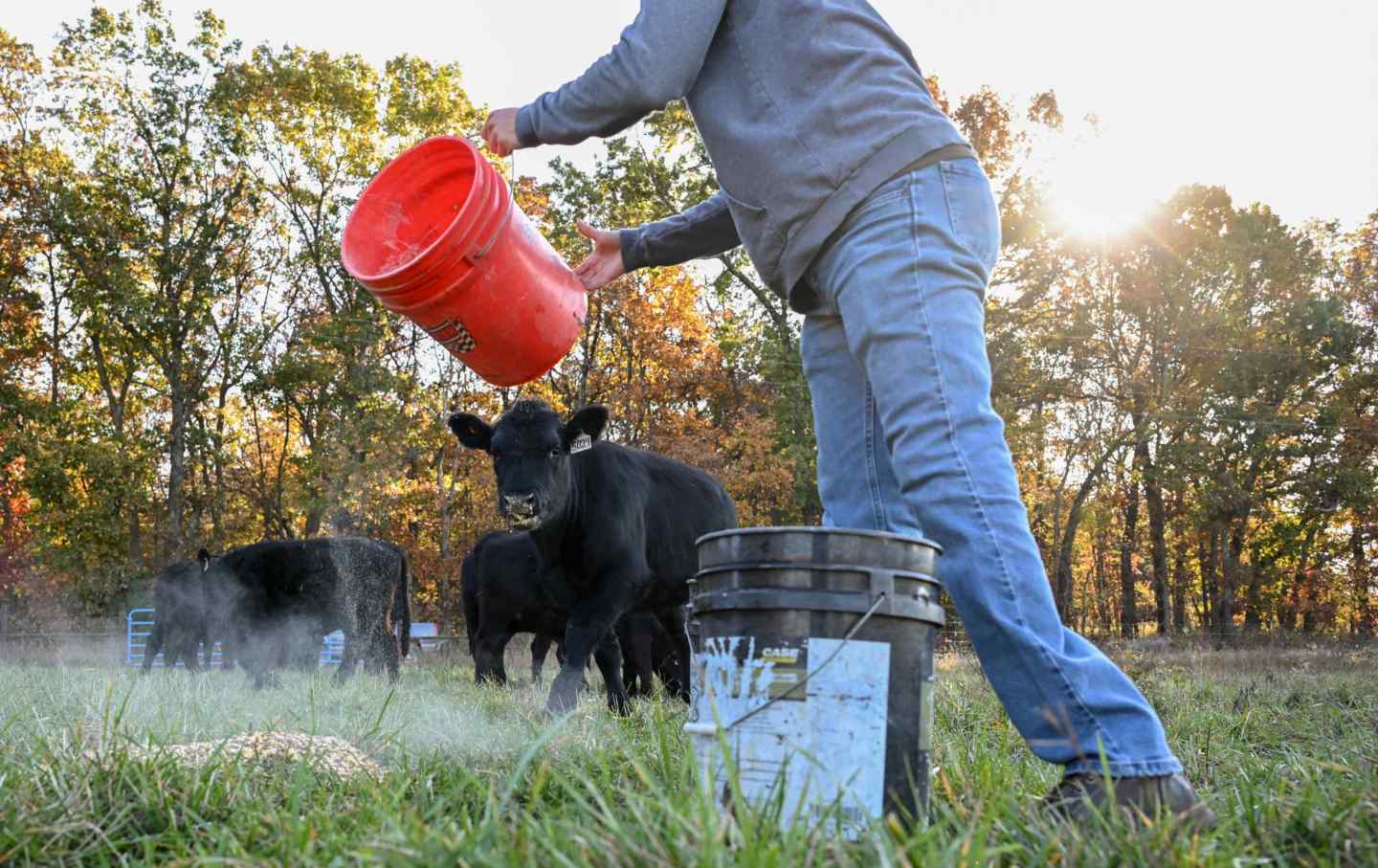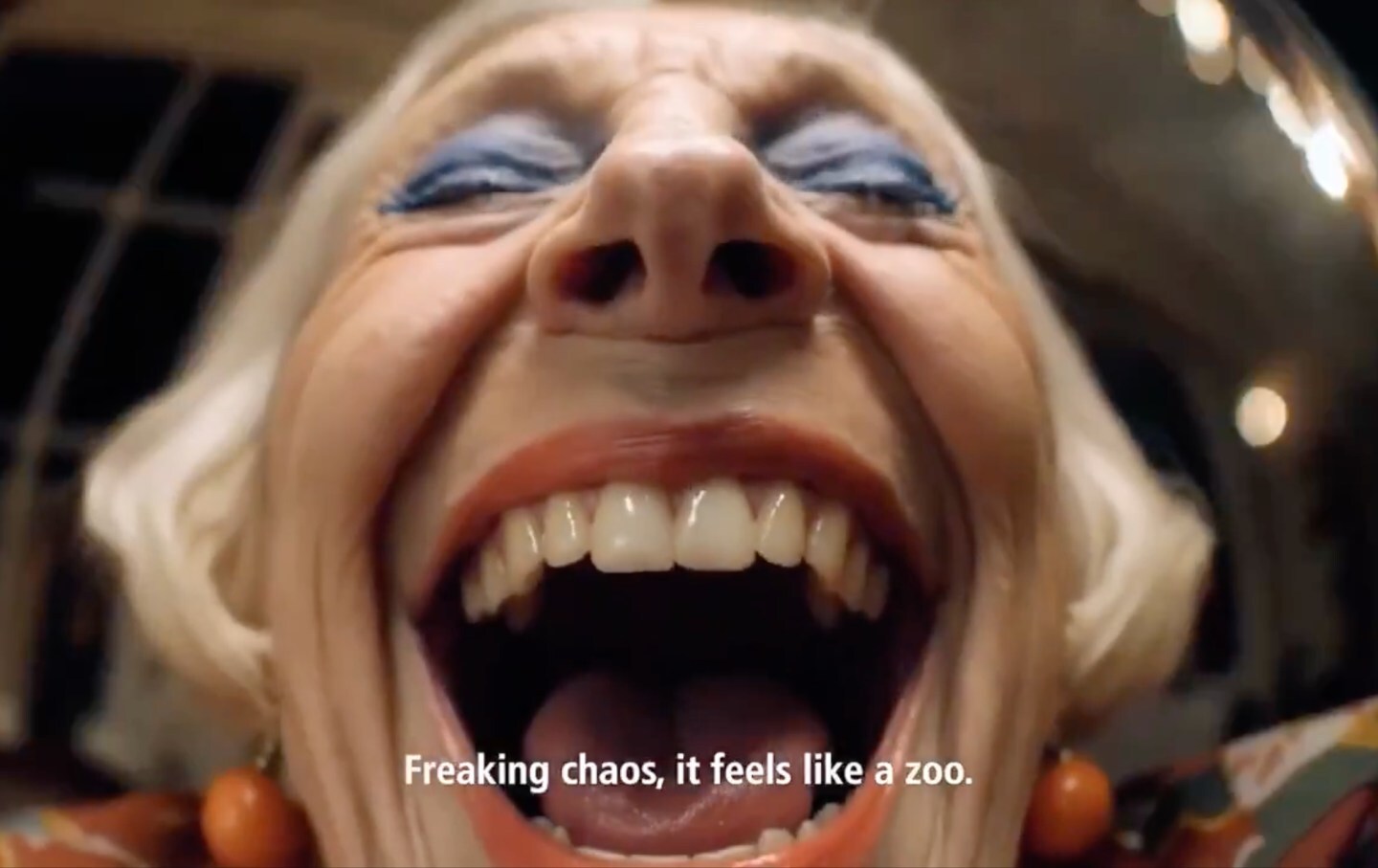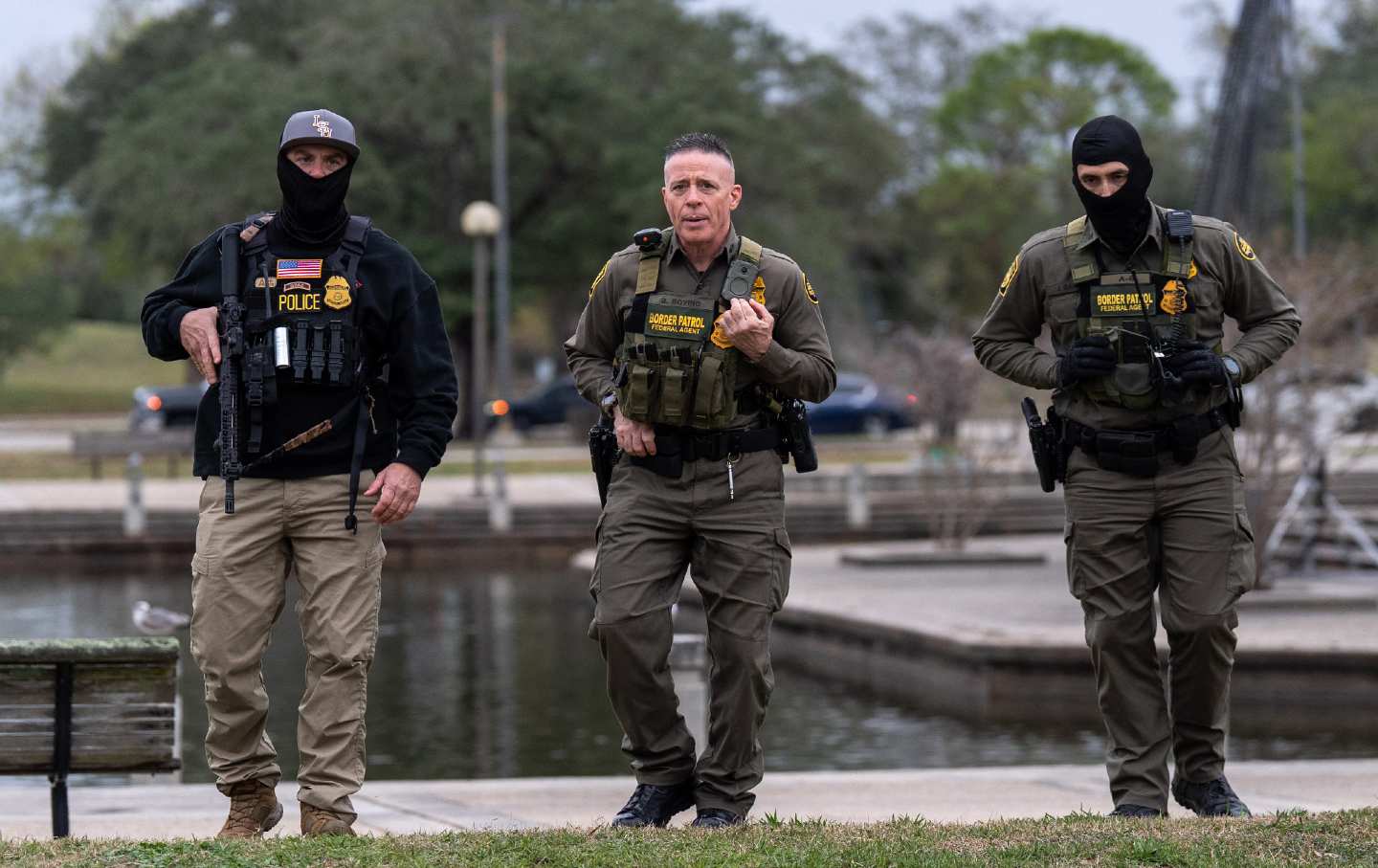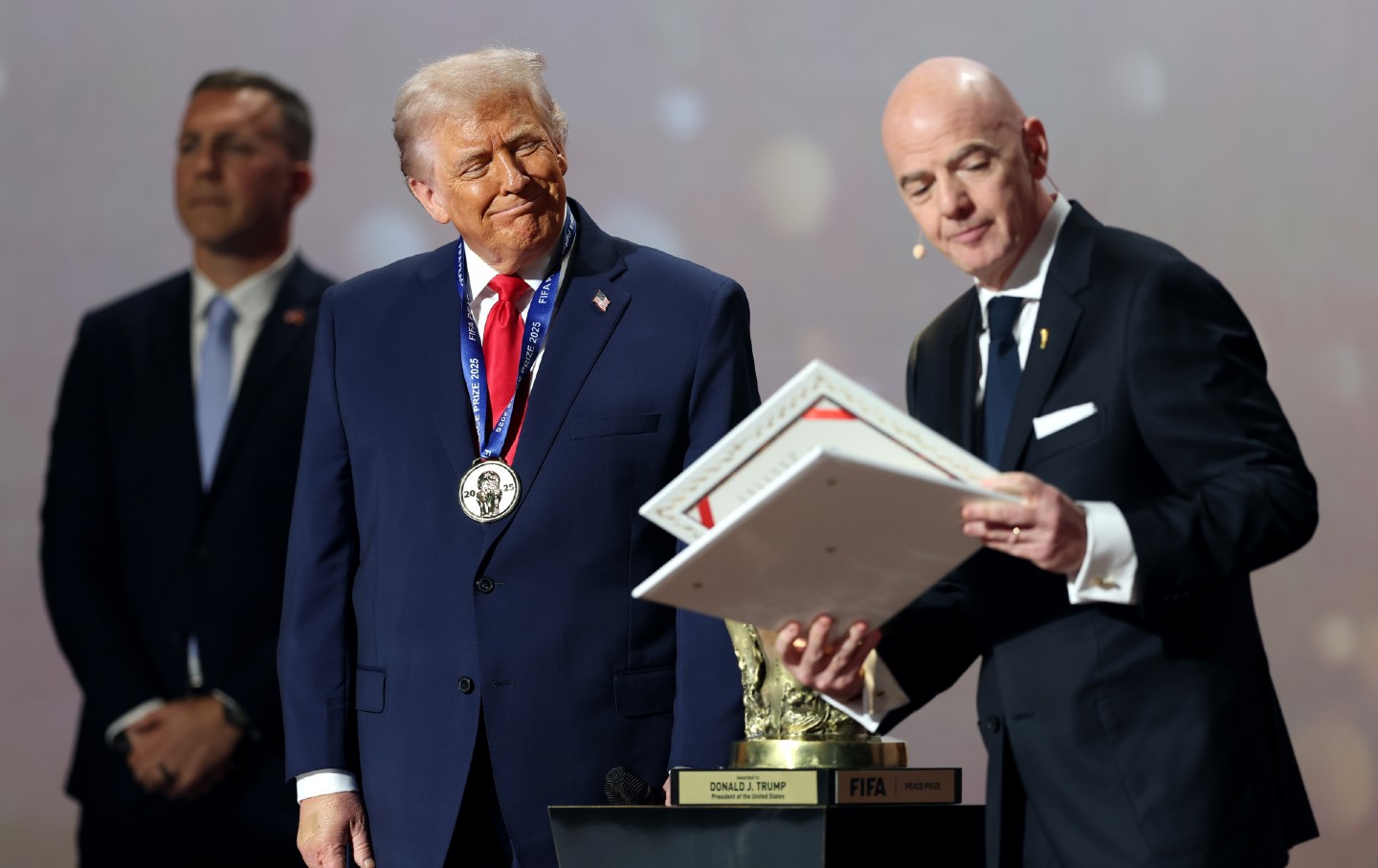Abortion Took Center Stage at the Debate, but Queering Reproductive Justice Must Be the Goal
If LGBTQIA+ communities are not centered in the fight for justice, our communities will never be free.
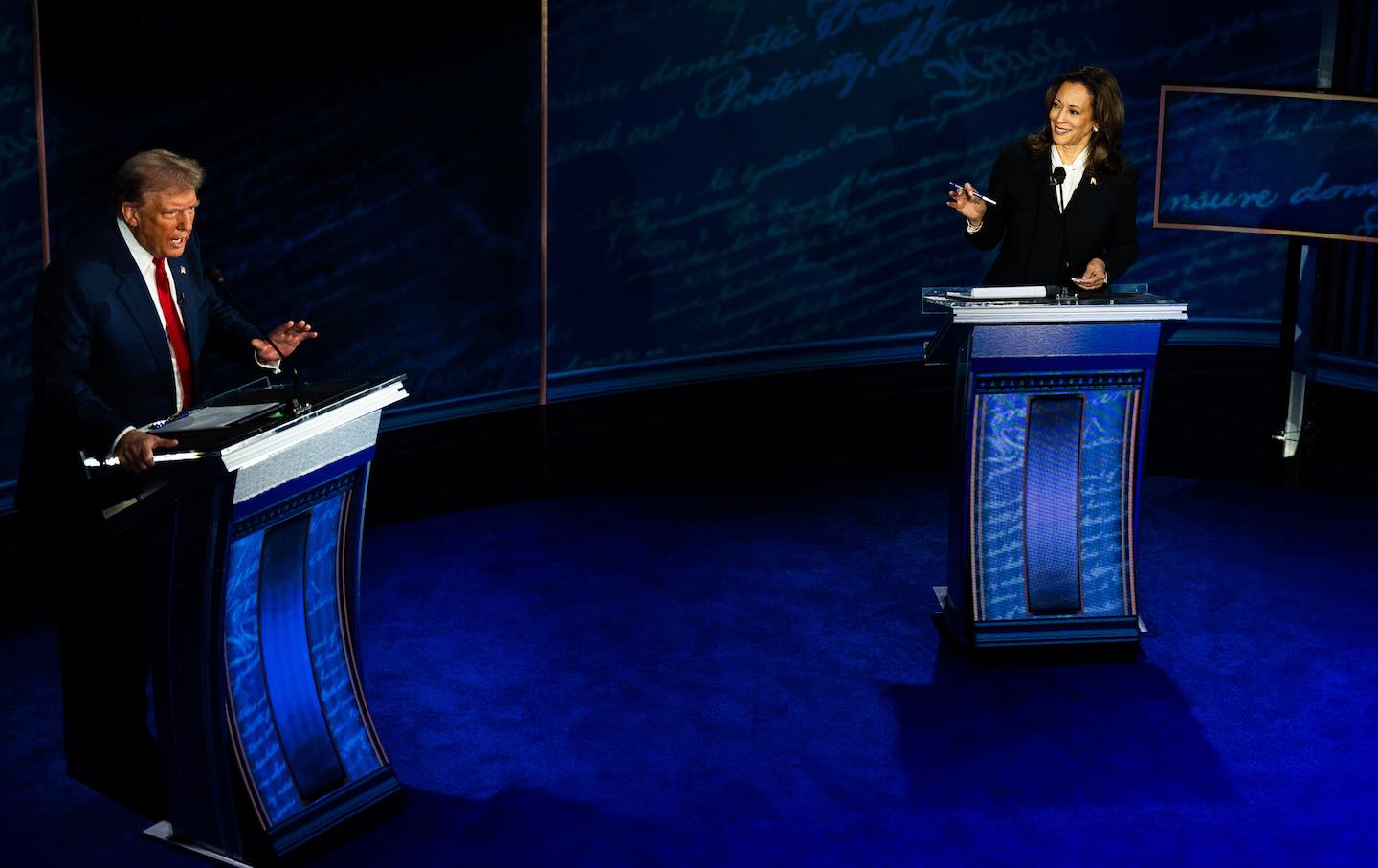
Democratic presidential candidate Vice President Kamala Harris and former president and Republican presidential candidate Donald Trump during the first presidential debate at National Constitution Center in Philadelphia on September 10, 2024.
(Photo by Demetrius Freeman / The Washington Post via Getty Images)
Vice President Kamala Harris was the only presidential candidate on the debate stage on Tuesday night who presented accurate facts about abortion. Harris reminded voters that currently “in over 20 states there are Trump abortion bans which make it criminal for a doctor or nurse to provide health care. In one state it provides prison for life.” She added that these bans “make no exception even for rape and incest.” And while she vowed only to “reinstat[e] the protections of Roe v. Wade,” rather than echoing advocates who have made it clear that the 1973 Supreme Court decision did not go far enough to protect abortion access, she pointed to recent cases in which people facing pregnancy complications were forced to seek abortions to make her argument that no one should be told what to do with their own body.
When asked about abortion, Donald Trump made claims that are not based in reality. Vice President Harris (and debate moderator Linsey Davis) quickly fact-checked his ridiculous lie that a former West Virginia governor said that “[when] a baby [is] born, [then] we will decide what to do with the baby. In other words, we’ll execute the baby.” States do not legally allow the execution of newborn babies. To be crystal clear, there is no such thing as abortion after birth, and there is no state in this country that allows this scenario.
But the moderators’ questions, the candidates’ answers, and the public response to all of it serve as an important reminder that this election will be a pivotal moment in history for reproductive rights—and will likely bring large numbers of people out to vote in order to support and protect the right to abortion. It’s not just the top of the ticket either. Voters in 10 states will have the chance to vote on abortion ballot measures.
More on the Debate
For me, personally, as a queering reproductive justice advocate—and someone who has had to explain my own needs to doctors and legislators alike—Tuesday night’s debate reminded me that there is still so much work to do at the intersection of reproductive justice and LGBTQIA+ liberation. For one, there was no mention of the reality that people who do not identify as women, such as transgender men and gender-nonconforming people, also have—and need access to—abortion. Instead, the conversation solely focused on “her” body and “her” decision.
Yes, abortion is a women’s rights issue. Importantly, one in four women have had an abortion. Women need access to abortion—and so do all people who can get pregnant who want to have an abortion.
I popularized the term “queering reproductive justice”—and even wrote a book about it—to shine a light on how different fundamental issues intersect with LGBTQIA+ rights and justice, such as the role safe and healthy environments play in ensuring that LGBTQIA+ individuals can live without barriers or discrimination and absent state violence. I also emphasize the importance of religious pluralism and ensuring that religious exemptions do not harm anyone trying to access healthcare, housing, or institutions like marriage.
In my book, I present queering reproductive justice as an approachable framework aimed at building community across social movements—including those promoting voting rights and those fighting for a living wage for workers and the ability to accumulate wealth. This framework is centered around the lived experiences and reproductive needs of LGBTQIA+ individuals and communities so that their rights and needs are prioritized in all progressive spaces, when that has not always been the case. This theory’s ultimate goal is to ensure that LGBTQIA+ liberation occurs as all other rights and freedoms are achieved. If LGBTQIA+ communities are not seen as stakeholders in all fights for justice, our communities will never be free.
The queering reproductive justice framework merges reproductive justice and LGBTQIA+ liberation, and ultimately “demands that all people have (1) the right to not partner with others and to not have a child; (2) the right to create a family of one’s choosing and to partner with one or more consenting persons, regardless of one’s sexual orientation, gender identity, or sexual expression; as well as the right to have a child and build a family without regard to traditional forms of conception, pregnancy, birthing, or two-parent childrearing, and (3) the right to raise oneself, and to raise one’s family, in safe and healthy environments absent stigma, discrimination, and systemic institutional oppression.”
Put simply, the queering reproductive justice framework aims to guarantee that everyone has the ability to love and to create the families of one’s choosing, and has the resources and support to do so. In addition to having children, or not having children, this framework supports all forms of consensual partnership including marriage, non-marital partnerships, romantic partnerships, non-romantic companionship, and even families of one. All family dynamics deserve to be equitably resourced by the government, and through law and policy, without the need for traditional marriage.
Reproductive justice will only be achieved if the needs of LGBTQIA+ folks are centered and considered to be a vital piece of the advocacy puzzle, because our rights are tied up with one another. When a trans man is able to receive unimpeded access to birth control, so will a cisgender woman. When a queer couple is able to adopt a child, then adoption for all families will be easier to access. And when a queer person is able to work in an office without sexual or gender discrimination, all people in that workplace benefit. Similarly, LGBTQIA+ liberation will only occur if reproductive justice—and access to basic healthcare needs like abortion, contraception, and in vitro fertilization—is included in the fight for LGBTQIA+ freedom.
The presidential debate between Kamala Harris and Donald Trump cemented into history the vital role that reproductive rights play in people’s lives. But the fight doesn’t end there. Until there is unfettered access to abortion for anyone who wants one, sexual and reproductive rights will continue to be in jeopardy for everyone.
In case you were waiting for one, this is your invitation to join this fight with other queering reproductive justice advocates. It is my deepest hope that you do. After all, we are the ones we’ve been waiting for.
Disobey authoritarians, support The Nation
Over the past year you’ve read Nation writers like Elie Mystal, Kaveh Akbar, John Nichols, Joan Walsh, Bryce Covert, Dave Zirin, Jeet Heer, Michael T. Klare, Katha Pollitt, Amy Littlefield, Gregg Gonsalves, and Sasha Abramsky take on the Trump family’s corruption, set the record straight about Robert F. Kennedy Jr.’s catastrophic Make America Healthy Again movement, survey the fallout and human cost of the DOGE wrecking ball, anticipate the Supreme Court’s dangerous antidemocratic rulings, and amplify successful tactics of resistance on the streets and in Congress.
We publish these stories because when members of our communities are being abducted, household debt is climbing, and AI data centers are causing water and electricity shortages, we have a duty as journalists to do all we can to inform the public.
In 2026, our aim is to do more than ever before—but we need your support to make that happen.
Through December 31, a generous donor will match all donations up to $75,000. That means that your contribution will be doubled, dollar for dollar. If we hit the full match, we’ll be starting 2026 with $150,000 to invest in the stories that impact real people’s lives—the kinds of stories that billionaire-owned, corporate-backed outlets aren’t covering.
With your support, our team will publish major stories that the president and his allies won’t want you to read. We’ll cover the emerging military-tech industrial complex and matters of war, peace, and surveillance, as well as the affordability crisis, hunger, housing, healthcare, the environment, attacks on reproductive rights, and much more. At the same time, we’ll imagine alternatives to Trumpian rule and uplift efforts to create a better world, here and now.
While your gift has twice the impact, I’m asking you to support The Nation with a donation today. You’ll empower the journalists, editors, and fact-checkers best equipped to hold this authoritarian administration to account.
I hope you won’t miss this moment—donate to The Nation today.
Onward,
Katrina vanden Heuvel
Editor and publisher, The Nation

